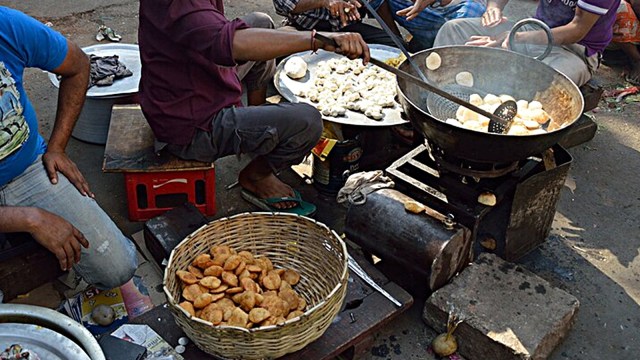Poor food safety norms in Punjab and Haryana flagged in PIL
Punjab and Haryana High Court asks Centre, states to take a call in 2 months on a representation seeking stricter enforcement of the Food Safety and Standards Act.
 RTI data revealed that in Punjab, an average of 80 per cent of all food samples collected statewide have been declared unsafe or sub-standard. (Source: Wikimedia Commons)
RTI data revealed that in Punjab, an average of 80 per cent of all food samples collected statewide have been declared unsafe or sub-standard. (Source: Wikimedia Commons)The Punjab and Haryana High Court has directed the Union government and the states of Punjab and Haryana to decide, within two months, a representation seeking stricter enforcement of the Food Safety and Standards Act (popularly known as FSSAI Act), 2006. The direction came on November 17 while the court disposed of a public interest litigation (PIL) filed by lawyer Kanav Goyal and another petitioner, who raised concerns about gaps in food safety regulation in both states.
A division bench of Chief Justice Sheel Nagu and Justice Sanjiv Berry asked the Union Ministry of Health and Family Welfare and the respective Commissioners of Food Safety of Punjab and Haryana to pass a speaking order on the petitioners’ October 3, 2025, representation. The bench clarified that it was not expressing any view on the merits of the case and disposed of the PIL after the petitioners said they were satisfied with a limited direction for consideration of their notice.
The petition alleged widespread non-compliance with the FSSAI Act, especially in the registration and regulation of petty manufacturers, hawkers, and mobile vendors. It claimed that food safety officers were failing to carry out their statutory responsibilities and that neither state had a uniform procedure for licensing, sample collection, testing or prosecution.
Advocate Kanav Goyal told the court that RTI data revealed that in Punjab, an average of 80 per cent of all food samples collected statewide have been declared unsafe or sub-standard, while in Haryana, approximately 30 per cent of samples failed standards between April 2021 and March 2025.
Specific instances include Ambala (19 out of 19 samples from petty manufacturers found unsafe), Kaithal (14 unsafe), Sirsa (13 unsafe), and Rohtak (13 unsafe) in Haryana alone.
In Punjab, only eight out of 23 districts provided data on samples lifted from registered petty vendors, with the remaining 15 either not responding or claiming no separate records are maintained.
Across both states, food safety officers conducted minuscule raids and sample collections despite statutory mandates, failed to initiate criminal prosecutions in the majority of failed-sample cases, took virtually no coercive action against violators, and organised almost no awareness programs, particularly targeting street vendors, hawkers, and mobile food sellers. The petition points to widespread nepotism, graft, and malfeasance among officers as key reasons for the ‘near-total collapse of on-ground enforcement’ of the Food Safety and Standards Act, 2006.
In a consolidated set of prayers, the petitioners sought directions for framing clear Standard Operating Procedures (SOPs) for enforcement of the FSSAI Act and 2011 regulations, easing the registration process for petty vendors, ensuring regular inspections and action against errant officers, setting up a dedicated food testing laboratory, mandating criminal complaints in unsafe or sub-standard sample cases, enhancing penalties for adulteration, closing repeat offenders and establishing Food Safety Tribunals in both states.
During the brief hearing, Goyal appeared in person. Senior Advocate Dheeraj Jain represented the Union of India. Haryana was represented by Additional Advocate General Neeraj Gupta and Punjab by Senior Deputy Advocate General Salil Sabhlok. The Punjab counsel assured the court that the petitioners’ representation would be examined in accordance with the law.
The court also directed that the petitioners can approach the court again if they are dissatisfied with the decision on their representation.



- 01
- 02
- 03
- 04
- 05




























